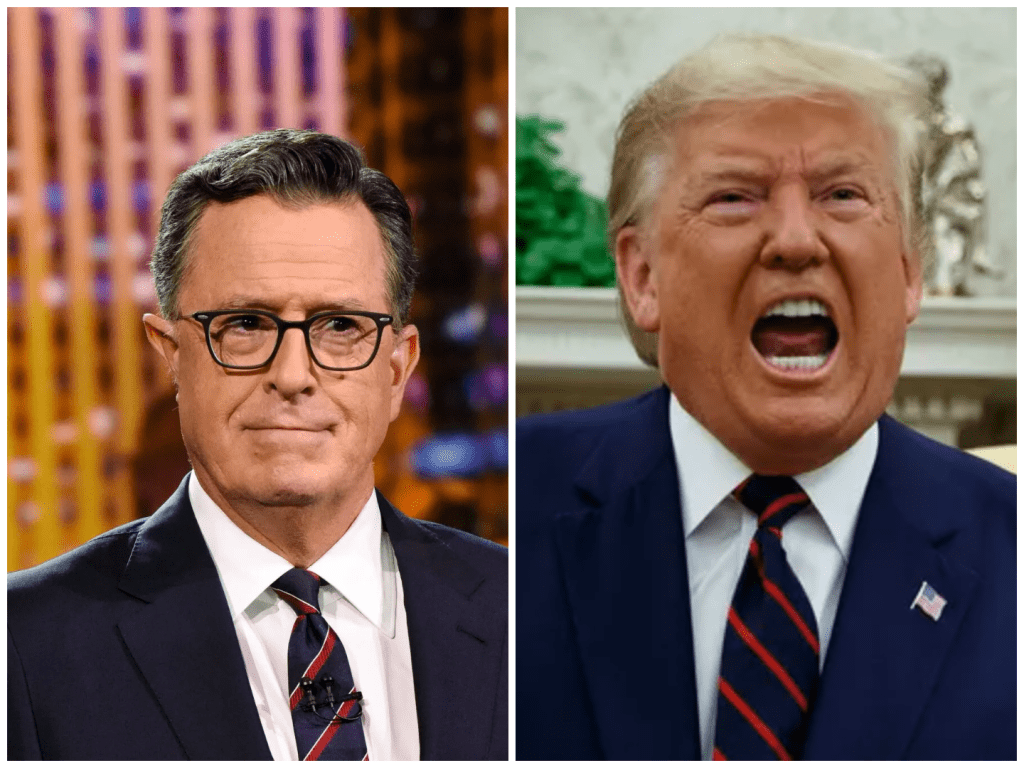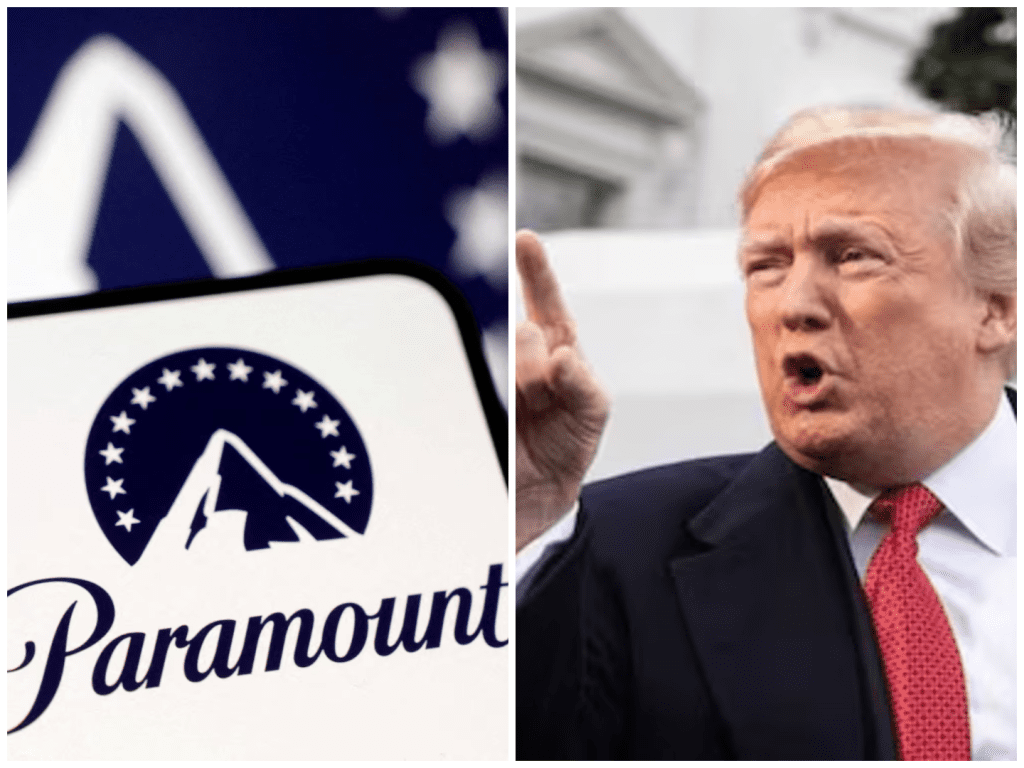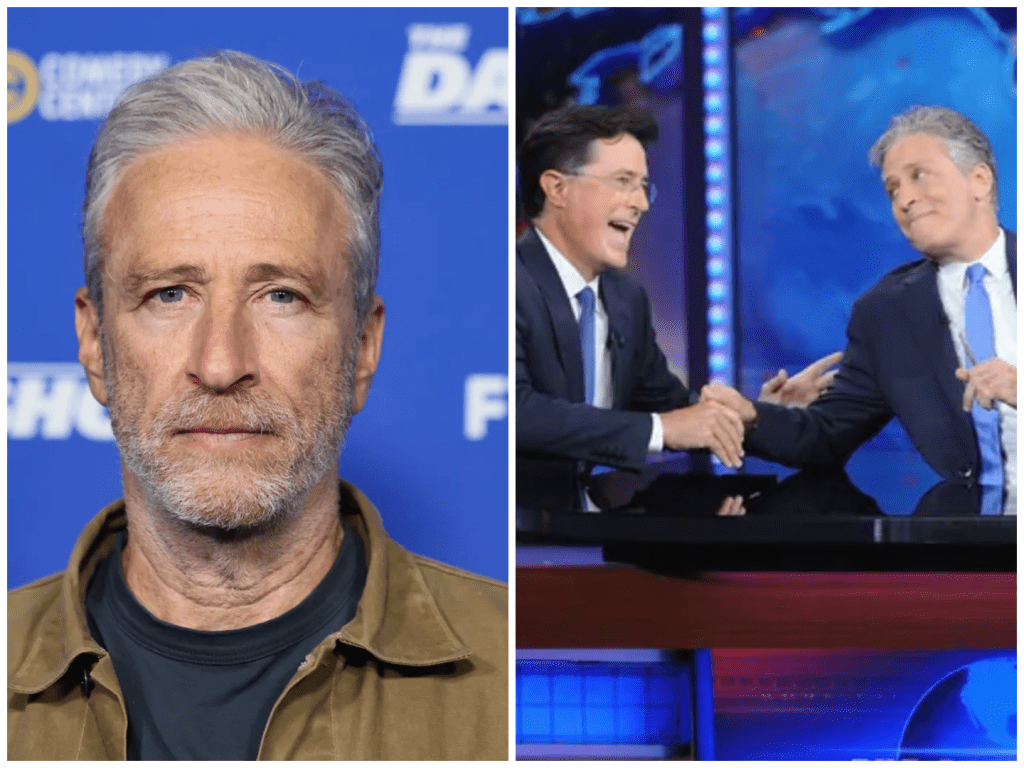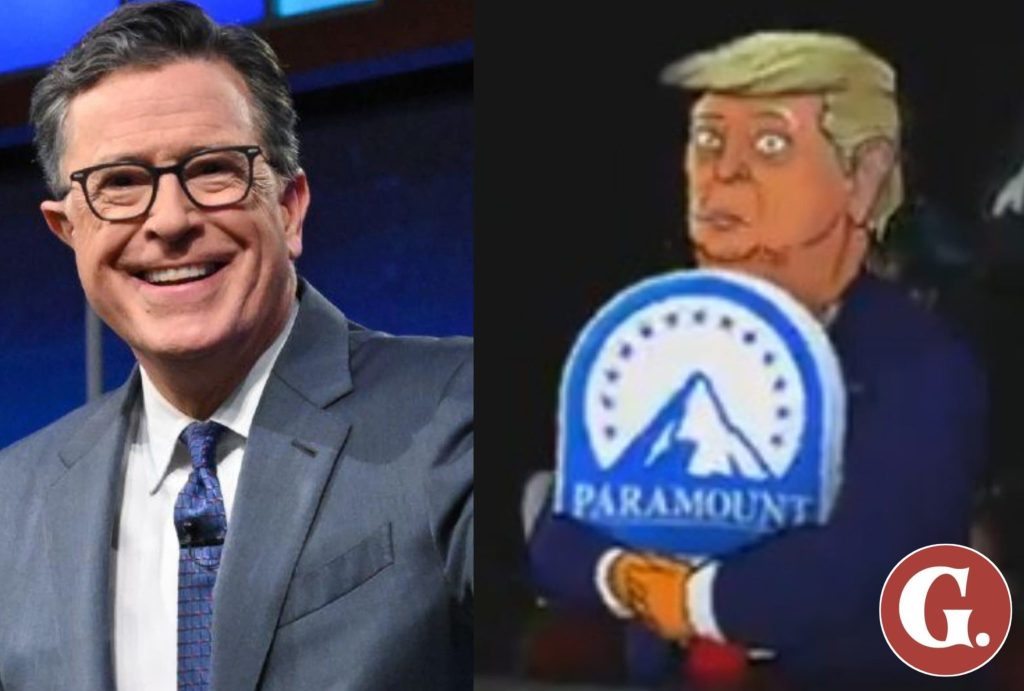Stephen Colbert’s ‘Late Show’ Canceled Amid Paramount’s $16M Trump Settlement—Was Political Pressure to Blame?
Evening television has long been a safe haven for laughs, wit, and a sense of companionship—until last week, when a single announcement shattered that comfort. Stephen Colbert, the witty, earnest host of The Late Show, revealed his program will end in May 2026. CBS called the decision “purely financial,” but the timing and hidden tensions suggest something much deeper was unfolding.

Underneath the studio lights lay a storm brewing at Paramount Global. In July, the company quietly paid $16 million to settle Donald Trump’s lawsuit over a “60 Minutes” interview with Kamala Harris. Trump claimed the segment was deceptively edited, though CBS insisted it followed standard journalistic practices. Paramount maintained no apology was issued, and the payment would go toward Trump’s presidential library.
Colbert, known for political sharpness, called it a “big fat bribe,” and delivered one of his most biting monologues yet. He even staged a mock “kiss cam” moment on his show, where an animated Trump embraced—and was abruptly dropped by—the Paramount logo, underscoring what Colbert saw as disturbing alignment.

Days later, CBS announced the show’s cancellation, citing a steep $40–50 million loss per year—though Colbert quipped skeptically about the unexplained $16 million. He said, “I could see us losing $24 million, but where would Paramount have possibly spent the other $16 million?… Oh yeah.”
The sequence stunned plenty of observers. Jon Stewart responded with an expletive-laden defense on The Daily Show, accusing CBS of bowing to political and financial influence. Senator Elizabeth Warren called the settlement deeply suspect, saying “this looks like bribery,” and asked for more transparency. The Writers Guild echoed the concerns, urging investigations into the patchwork financial reasoning behind canceling a top-rated show.

Colbert didn’t back down. In his final days on set, he joked that cancel culture had gone too far—and directly told Trump to “go f*** yourself.” He launched into one last Coldplay-style musical set, joined by Weird Al Yankovic, Lin-Manuel Miranda and a host of surprise guests like Jimmy Fallon, Seth Meyers, John Oliver, Jon Stewart, Anderson Cooper, and Adam Sandler. The kiss cam gag delivered its sting: an animated Trump and Paramount logo briefly displayed before the broadcast was “cancelled” in mid-song.
Behind the scenes, timing matters. Paramount is pursuing an $8 billion merger with Skydance Media—an approval that hinges on FCC clearance. Trump had publicly threatened to use FCC influence against CBS over its controversial coverage. Critics say Paramount’s settlement may have been a gesture to ease that path.
All these entanglements have sparked a larger conversation. Is late-night political satire becoming collateral damage in shifting media landscapes? Colbert’s show, a CBS staple since 2015 and a torchbearer for political humor, now ends during a showdown over power, policy, and the boundaries of creative dissent.
The cancellation was framed as a business choice, but critics see a pattern: a politically motivated call to quiet the powerful voice of satire during a turbulent merger and election cycle. Sketches that challenged authority, riffs on power, and sharp cultural commentary are suddenly casualties.
Colbert’s reaction encapsulates the tension. He praised CBS as “great partners,” while lambasting Paramount’s decision-making—calling out the settlement’s coincidence with his lampoon and the looming merger. He insists The Late Show maintained strong ratings, making financial explanations feel thin at best.
In the coming months, Late-Night shows and the WGA will press FCC Chair Brendan Carr and Massachusetts AG Letitia James to investigate any undue influence or forced compliance. Politicians are weighing in, calling it a test of editorial independence and free speech—not just for CBS, but for all media.
As the final season of The Late Show ramps up, Colbert’s cast and crew plan to use the platform for one last barrage of wit and critique. His parting shot? A pledge to continue speaking truth to power, even if the studio lights go dark in May.
This isn’t just a network shake-up or comedy footnote. It’s a moment that spills into democracy itself: how much influence politics, mergers, and lawsuits can exert over the voices we trust to challenge and reflect our times. Colbert’s exit isn’t just about TV—it’s a signal in the noise that free speech rarely takes a graceful curtain call.


